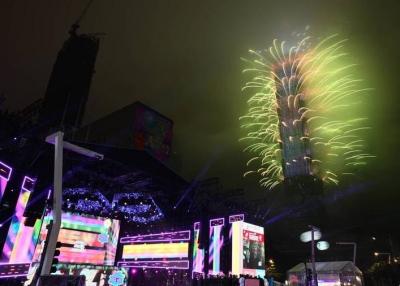Venezuelan President Hugo Chavez is aiming to set up neighborhood-based militias, move toward a socialist economy and increase state control over agriculture under a package of laws enacted by presidential decree.
Changes in areas from the military to small business loans were pushed through by the president in 26 laws released on Monday in the official gazette. Chavez approved them on the final day of an 18-month period during which lawmakers had granted him special legislative powers.
Critics fumed that Chavez did not consult with major business groups before approving the decrees, and some warned the laws would scare off private investment and weaken private enterprise.
“We ask the president: Why does he fear democracy?” Fedecamaras business chamber leader Jose Manuel Gonzalez said at a news conference.
Gonzalez said business leaders were busy analyzing the scope of the decrees because they came as a complete surprise. He warned the package of laws included socialist concepts that voters rejected last year as part of Chavez’s proposed overhaul of Venezuela’s Constitution.
“We are sure that this is nothing more than imposing the reform project that was rejected in December,” Gonzalez said.
Vice President Ramon Carrizalez denied it, saying “there are things that can be done without the necessity of reforming the Constitution.”
Under one of the new laws, food retailers or distributors caught skirting government-imposed price controls or hoarding products will be punished with up to six years in prison.
Business owners who refuse to produce, import, transport or sell “items of basic necessity” can face up to 10 years in jail.
The decree allows the government to “restrict or prohibit the import, export, distribution, exchange or sale” of certain foods or agricultural products and “take over distribution activities when considered necessary.”
Other measures increase state control over commerce, services and publicity. One decree aims to support efforts toward a socialist-style economy at the community level, providing for bartering of goods and “social property” businesses operated communally.
Businesses that violate the new rules can face fines or indefinite closure.

The Taipei MRT is open all night tonight following New Year’s Eve festivities, and is offering free rides from nearby Green Line stations. Taipei’s 2025 New Year’s Eve celebrations kick off at Taipei City Hall Square tonight, with performances from the boy band Energy, the South Korean girl group Apink, and singers Gigi Leung (梁詠琪) and Faith Yang (楊乃文). Taipei 101’s annual New Year’s firework display follows at midnight, themed around Taiwan’s Premier12 baseball championship. Estimates say there will be about 200,000 people in attendance, which is more than usual as this year’s celebrations overlap with A-mei’s (張惠妹) concert at Taipei Dome. There are

The Mainland Affairs Council (MAC) yesterday vowed to investigate claims made in a YouTube video about China’s efforts to politically influence young Taiwanese and encourage them to apply for Chinese ID cards. The council’s comments follow Saturday’s release of a video by Taiwanese rapper Chen Po-yuan (陳柏源) and YouTuber “Pa Chiung (八炯)” on China’s “united front” tactics. It is the second video on the subject the pair have released this month. In the video, Chen visits the Taiwan Youth Entrepreneurship Park in Quanzhou in China’s Fujian Province and the Strait Herald news platform in Xiamen, China. The Strait Herald — owned by newspaper

NEW YEAR’S ADDRESS: ‘No matter what threats and challenges Taiwan faces, democracy is the only path,’ William Lai said, urging progress ‘without looking back’ President William Lai (賴清德) yesterday urged parties across the political divide to democratically resolve conflicts that have plagued domestic politics within Taiwan’s constitutional system. In his first New Year’s Day address since becoming president on May 20 last year, Lai touched on several issues, including economic and security challenges, but a key emphasis was on the partisan wrangling that has characterized his first seven months in office. Taiwan has transformed from authoritarianism into today’s democracy and that democracy is the future, Lai said. “No matter what threats and challenges Taiwan faces, democracy is the only path for Taiwan,” he said. “The only choice

CORRUPTION: Twelve other people were convicted on charges related to giving illegal benefits, forgery and money laundering, with sentences ranging from one to five years The Yilan District Court yesterday found Yilan County Commissioner Lin Zi-miao (林姿妙) guilty of corruption, sentencing her to 12 years and six months in prison. The Yilan District Prosecutors’ Office in 2022 indicted 10 government officials and five private individuals, including Lin, her daughter and a landowner. Lin was accused of giving illegal favors estimated to be worth NT$2.4 million (US$73,213) in exchange for using a property to conduct activities linked to the 2020 Chinese Nationalist Party (KMT) presidential and legislative election campaigns. Those favors included exempting some property and construction firms from land taxes and building code contraventions that would have required